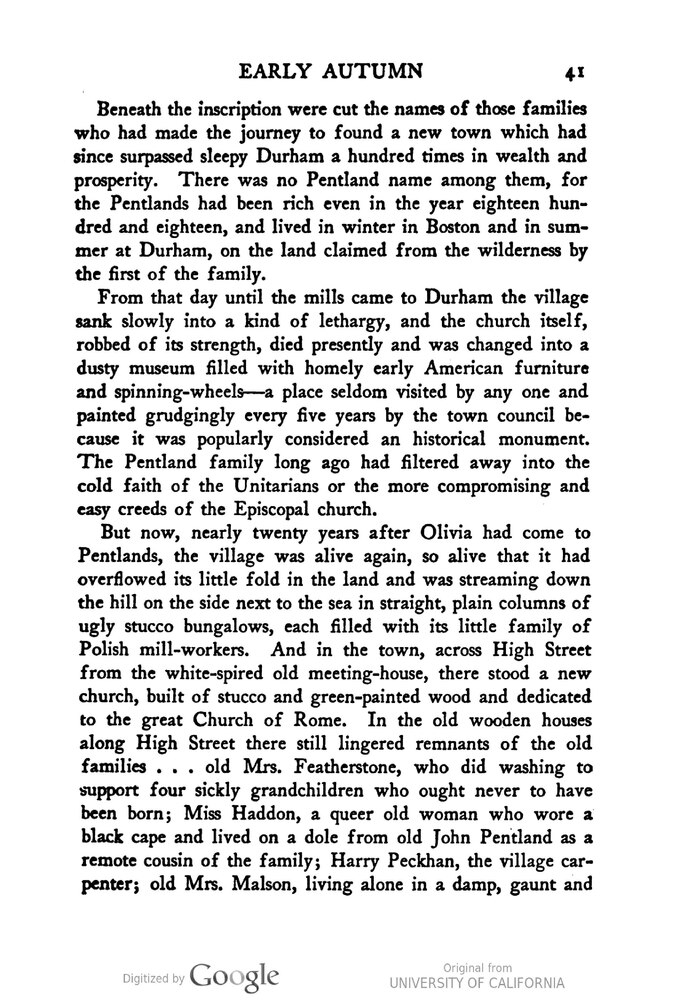Beneath the inscription were cut the names of those families who had made the journey to found a new town which had since surpassed sleepy Durham a hundred times in wealth and prosperity. There was no Pentland name among them, for the Pentlands had been rich even in the year eighteen hundred and eighteen, and lived in winter in Boston and in summer at Durham, on the land claimed from the wilderness by the first of the family.
From that day until the mills came to Durham the village sank slowly into a kind of lethargy, and the church itself, robbed of its strength, died presently and was changed into a dusty museum filled with homely early American furniture and spinning-wheels—a place seldom visited by any one and painted grudgingly every five years by the town council because it was popularly considered an historical monument. The Pentland family long ago had filtered away into the cold faith of the Unitarians or the more compromising and easy creeds of the Episcopal church.
But now, nearly twenty years after Olivia had come to Pentlands, the village was alive again, so alive that it had overflowed its little fold in the land and was streaming down the hill on the side next to the sea in straight, plain columns of ugly stucco bungalows, each filled with its little family of Polish mill-workers. And in the town, across High Street from the white-spired old meeting-house, there stood a new church, built of stucco and green-painted wood and dedicated to the great Church of Rome. In the old wooden houses along High Street there still lingered remnants of the old families . . . old Mrs. Featherstone, who did washing to support four sickly grandchildren who ought never to have been born; Miss Haddon, a queer old woman who wore a black cape and lived on a dole from old John Pentland as a remote cousin of the family; Harry Peckhan, the village carpenter; old Mrs. Malson, living alone in a damp, gaunt and
